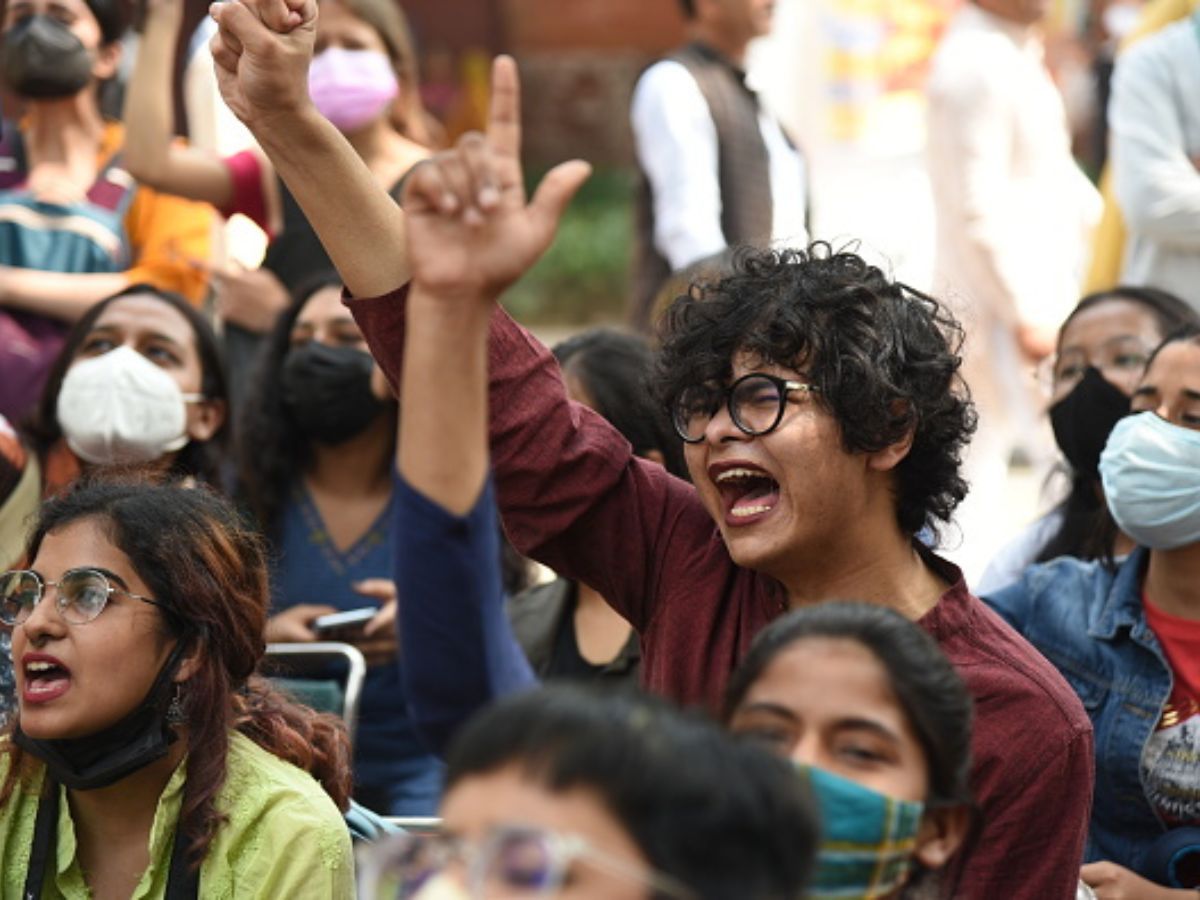The Supreme Court in 2022 made a number of significant decisions that were favourable to women. India may have a long way to go when it comes to gender equality, but the highest court of India issued a few landmark decisions this past year that upheld women's rights and gave women hope for a better future. Here is a list of some of the Supreme Court decisions related to women's rights, representation, positions, and contributions to society.
All Women Entitled To Safe And Legal Abortion, Irrespective Of Marital Status
On September 29, the Supreme Court of India ruled that all women are entitled to safe and legal abortion up to 24 weeks of pregnancy, irrespective of their marital status.
The apex court held that the marital status of a woman cannot be ground to deprive her right to abort unwanted pregnancy. Single and unmarried women also have the right to abort under the Medical Termination of Pregnancy Act and its rules, it stated.
This judgment came after the Supreme Court in July allowed a pregnant unmarried woman to abort her 24-week foetus.
The court said the distinction between married and unmarried women was "artificial and constitutionally unsustainable", as it perpetuated the stereotype that only married women indulge in sexual activities.
The bench of Justices DY Chandrachud, AS Bopanna and JB Pardiwal said it is "the woman alone who has the right over her body and is the ultimate decision-maker on the question of whether she wants to undergo an abortion".
Mother Being Natural Guardian Of Child Has Right To Decide Surname
On July 29, the Supreme Court upheld the decision of an Andhra Pradesh woman to change after her remarriage the surname of her minor son who was born from her late husband.
The court was hearing an appeal against an Andhra Pradesh HC judgment that had asked the woman to restore the child’s surname to the previous one. The court had told her to show in records the name of the late husband as her son's natural father or mention her new husband as his stepfather.
Disagreeing with the HC judgment, the apex court bench of Justices Dinesh Maheshwari and Krishna Murari said: “After the demise of her first husband, being the only natural guardian of the child we fail to see how the mother can be lawfully restrained from including the child in her new family and deciding the surname of the child.”
'Two-Finger Test' Re-Victimises, Re-Traumatises Rape Victims: SC
A Supreme Court bench on October 31 warned that anyone conducting the ‘two-finger test’ on victims of rape or sexual assault would be found guilty of misconduct. Calling the test “regressive and invasive”, the court said it has “no scientific basis as it neither proves nor disapproves allegations of rape”. Instead, the SC said, the two-finger test “re-victimises and re-traumatises women who may have been sexually assaulted”.
The bench comprising Justice DY Chandrachud and Hima Kohli said it was regrettable that the "two-finger test" continued to be conducted even today.
Making the remarks while restoring the conviction in a rape case, the apex court also asked the Union government to ensure that the ban on the test is enforced.
The bench overturned a decision of the Jharkhand High Court that had acquitted a rape and murder convict and upheld a decision of a trial court holding him guilty.
Asking Money For Construction Of A House To Be Treated As Dowry
In January 2022, the Supreme Court said any demand for money made from a woman's parents by her in-laws for constructing a house comes within the ambit of dowry. A bench of Justices NV Ramana, AS Bopanna and Hima Kohli said the word "dowry" should be given a wider interpretation so any demand made on a woman, "whether in respect of a property or a valuable security of any nature", could be included in it.
The court made the observation while setting aside a verdict of the Madhya Pradesh High Court, which had acquitted a man and his father in a case of dowry death on the ground that the victim had herself asked her family to send money to construct the former's house, and that could not be seen as a dowry demand.
The bench ruled that the daughter's request for a "loan" to pay for her in-laws to build a house would also be considered a dowry.
"The offence of dowry death is an offence against society," the SC noted and ruled that the offenders should receive harsher sentences.
SC Questions Army, Centre About Bias Against Women Officers
In November, the Supreme Court asked the Centre to respond to a petition filed by 34 female Army officers seeking promotions to higher ranks, questioning the Army's use of Special Selection Boards only for male officers. According to the 34 women Army officers, the Supreme Court's direction in the landmark Babita Punia case in February 2020 had not ensured promotion for women officers.
Hearing the petition, a bench headed by Chief Justice DY Chandrachud asked the Centre and the Army to support the case of 34 permanently commissioned women officers and put the matter on hold for another two weeks.
Taking up the matter on December 9, the Supreme Court asked the army to put its "house in order", saying it has not been "fair" to the women officers.
The Centre told the Supreme Court during the next hearing on December 13 that a special selection board had been convened from January 9 to consider as many as 246 women officers for promotion.
The SC will next hear the case on January 30, by when it has asked the Centre and the Army to file an updated report.


